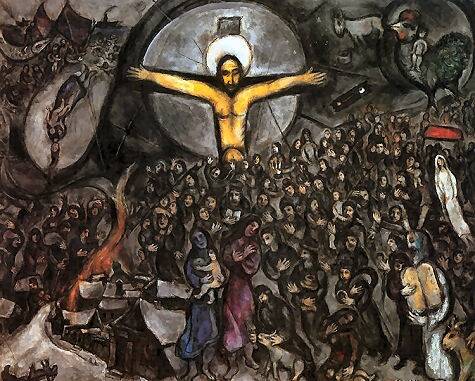They live on rice and beans, the business men said. They don’t need much. They wouldn’t know what to do with good wages. Why, look how they live. Why, look what they eat. And if they get funny—deport them.
The words are frightfully contemporary, but they are found in John Steinbeck’s American classic, The Grapes of Wrath (1939). The outsiders, who inspire such fear and derision, are not from across the southern border of the United States. They are from Oklahoma, Kansas and other states of the Great Plains, fleeing depression and dust bowl.
We got to keep these people down or they’ll take the country. They’ll take the country.
Outlanders. Foreigners.Sure they talk the same language, but they ain’t the same. Look how they live. Think any of us folks’d live like that? Hell, no!
Hatred follows fear, flows from it, as surely as love quickens courage. We do not hate gratuitously. Hate buds in fear, ripens in its heat. That is what the doctrine of Original Sin is all about. We are wounded ourselves before we strike out at others. Fear and ignorance are the parents of prejudice. When we fail to confront it in ourselves, we make those different from us into adversaries.
In the West there was panic when the migrants multiplied on the highways. Men of property were terrified for their property. Men who had never wanted anything very much saw the flare of want in the eyes of the migrants. And the men of the towns and the soft suburban country gathered to defend themselves; and they reassured themselves that they were good and the invaders bad, as a man must do before he fights. They said, These goddamned Okies are dirty and ignorant. They’re degenerate, sexual maniacs. These goddamned Okies are thieves. They’ll steal anything. They have no sense of property rights.
God didn’t create us to sin, so it does not come naturally to us. Fear and ignorance always attend, always serve, sin. We are frightened when we need not be. That is when we convince ourselves that darkness is light and turn from truth. That is how we sin.
In The Grapes of Wrath, the character Jim Casy gives up preaching. He cannot resist the temptations of the flesh, he says, and, moreover, his faith is weak. Instead, he wants to concentrate upon loving this earth and the men and woman who live upon it. That is how he comes to be involved in a dispute, when sheriff’s deputies fear that labor agitators have infected the migrant camp. Jim Casy intervenes, trying to reason with the officers.
Casy stared blindly at the light. He breathed heavily. “Listen,” he said. “You fellas don’ know what you’re doin’. You’re helpin’ to starve kids.”
“Shut up, you red son-of-a-bitch.”
A short heavy man stepped into the light. He carried a new white pick handle.
Casy went on, “You don’t know what you’re doin’.”
The heavy man swung with the pick handle. Casy dodged down into the swing. The heavy club crashed into the side of his head with a dull crunch of bone, and Casy fell sideways out of the light.
“Jesus, George. I think you killed him.”
“Put the light on him,” said George. “Serve the son-of-a-bitch right.” The flashlight beam dropped, searched and found Casy’s crushed head.
Jim Casy’s dying words echo those of our Lord in Luke’s passion. “Father, forgive them, Father, they know not what they do” (23:34). What links the two—what happened on Calvary, and what happens to our contemporaries?
The Gospel is a proclamation. It imparts a saving knowledge that ultimately defeats the ignorance that breeds sin. What the Gospel proclaims is the triumph of God’s mercy through the cross of Christ. That’s the insight that expels fear. The Gospel, faithfully preached, is the grace that destroys sin by pulling out its twin roots: ignorance and fear.“You don’t know what you’re doin’.” Indeed, we do not. We yet dwell under the dominion of sin, in fear and in ignorance. “Father, forgive them, Father, they know not what they do.” Yet we have a Gospel to share with the world, one of transforming grace. Mercy has triumphed. Ignorance and fear can be cast aside.
Readings: Isaiah 52:13-53:12 Hebrews 4:14-16; 5:7-9 John 18:1-19:42











Thank you for well thought out and clearly presented article. The connections between fictional dialog and scripturally based views are extremely well drawn.
Ignorance and fear prompt sin, but the biggest force motivating people to sin is the desire for power. The desire for power over others underlies all of the cardinal sins. The definition of Original Sin should be changed to reflect that reality.
Steinbeck: " Men who had never wanted anything very much saw the flare of want in the eyes of the migrants." Current refugee crisis has the same look. Klein: " Fear and ignorance always attend, always serve, sin."